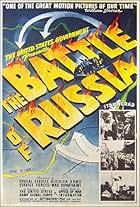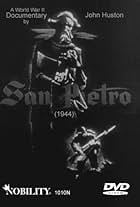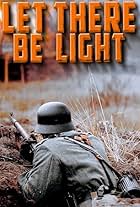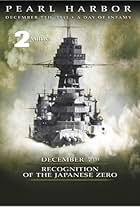NOTE IMDb
6,1/10
2,3 k
MA NOTE
Ajouter une intrigue dans votre langueThe Japanese attack on Midway in June 1942, filmed as it happened.The Japanese attack on Midway in June 1942, filmed as it happened.The Japanese attack on Midway in June 1942, filmed as it happened.
- Récompensé par 1 Oscar
- 1 victoire au total
Henry Fonda
- Narrator
- (voix)
Jane Darwell
- Narrator
- (voix)
James Roosevelt
- Self - US Army Major
- (as Major Roosevelt)
Donald Crisp
- Main Narrator
- (voix)
- (non crédité)
Irving Pichel
- Narrator
- (voix)
- (non crédité)
Jimmie Thach
- Self - Naval Aviator
- (non crédité)
Histoire
Le saviez-vous
- AnecdotesDirector John Ford and cinematographer Joseph H. August were wounded by enemy fire while filming the battle.
- Citations
Main Narrator: Midway Island. Not much land right enough, but it's our outpost. Your front yard.
- ConnexionsEdited into Ils ont filmé la guerre en couleur (2000)
- Bandes originalesAmerica, My Country Tis of Thee
(1832) (uncredited)
Music by Lowell Mason, based on the Music by Henry Carey from "God Save the King" (1744)
Words by Samuel F. Smith
Played in the score and later sung by an offscreen chorus
Commentaire à la une
A documentary short, directed by John Ford. Covers the Battle of Midway, one of the most decisive battles of WW2. Taking place near the island of Midway in the central Pacific in June 1942, the battle turned the tide of the Pacific Theatre. Ford uses actual footage from the battle and the aftermath, with narration by Henry Fonda.
During WW2 the US used its mighty film industry to its advantage, producing high-quality news reels. documentaries and propaganda films. For this they enlisted some of the foremost directors of the age: Frank Capra, William Wyler, John Huston, John Sturges and John Ford, among others. Here, John Ford (or should I say, Lt. Commander John Ford, USNR) does his bit.
He does fairly well, capturing some great footage of the battle. It is more the editing and over-the-top, hammy added-on dialogue that weaken the film, and only when viewed with a 21st century lens. Propaganda films never have the same impact when viewed outside of wartime.
The movie went on to win the Best Documentary Oscar in 1943.
During WW2 the US used its mighty film industry to its advantage, producing high-quality news reels. documentaries and propaganda films. For this they enlisted some of the foremost directors of the age: Frank Capra, William Wyler, John Huston, John Sturges and John Ford, among others. Here, John Ford (or should I say, Lt. Commander John Ford, USNR) does his bit.
He does fairly well, capturing some great footage of the battle. It is more the editing and over-the-top, hammy added-on dialogue that weaken the film, and only when viewed with a 21st century lens. Propaganda films never have the same impact when viewed outside of wartime.
The movie went on to win the Best Documentary Oscar in 1943.
Meilleurs choix
Connectez-vous pour évaluer et suivre la liste de favoris afin de recevoir des recommandations personnalisées
Détails
- Durée18 minutes
- Mixage
- Rapport de forme
- 1.37 : 1
Contribuer à cette page
Suggérer une modification ou ajouter du contenu manquant


























